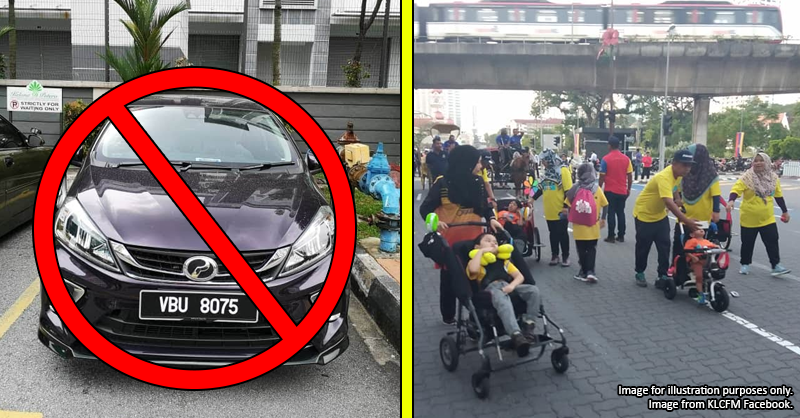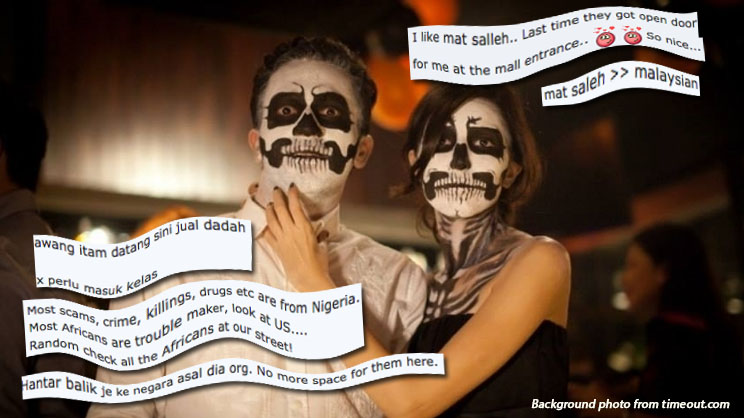KL businesses must now be 50% locally-owned & hired, so how does this affect foreigners?

- 1.2KShares
- Facebook1.1K
- Twitter11
- LinkedIn2
- Email39
- WhatsApp89
Last month, the media reported that DBKL had set a new regulation for businesses in KL: every business must be 50% owned by locals. As a Malaysian, you must make sure at least 50% of your business partner(s) are also Malaysians, whereas if a foreigner wants to open a business, he or she must find local business partners to fulfil the 50% local ownership policy. So if two people own a business, at least one of them must be local. If 10 people own a business, five of them must be locals.
On top of that, the new regulation also covers employees. Meaning business owners must hire at least 50% of local workers. Cannot be more foreign workers than local workers. So, sayonara, non-Malaysians, coz one month from 1 Nov 2016, the regulation was supposed to come into effect (technically it would’ve started last, last week on 1 Dec).
At first when we read the news it was a bit confusing (and shocking)… No more businesses with foreign owners?!? Are they trying to bankrupt KL?
Actually, it doesn’t affect those bigbig international corporations laa -_-
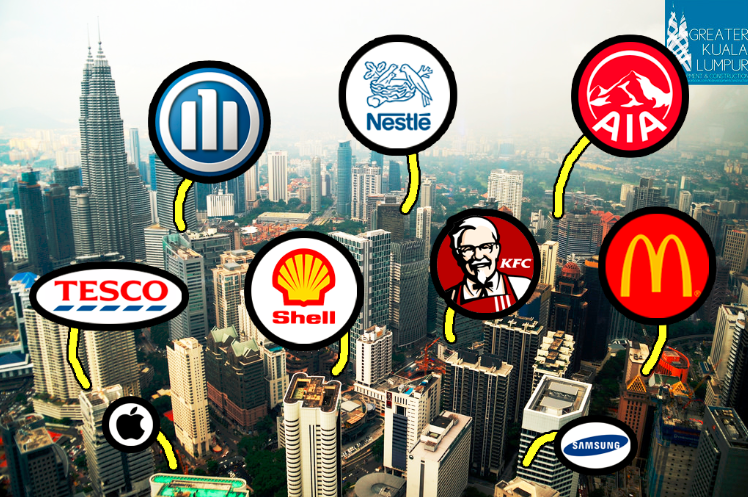
DBKL isn’t trying to get rid of all foreign-owned businesses in KL. If they were, Apple, Samsung, Nestle, McDonald’s and all those big international corporations would have to close down. Can you imagine if KL-ites cannot buy iPhones, eat Big Mac, or drink Milo?? There would be total anarchy! We would plunge into the darkness of the…. Dark Agesss! Gila meh? Why would DBKL chase away foreign investors who are bringing in money?
This new regulation only applies to petty traders, like your nasi lemak stalls or hawkers. In fact it doesn’t even affect restaurants, just small penjajas.
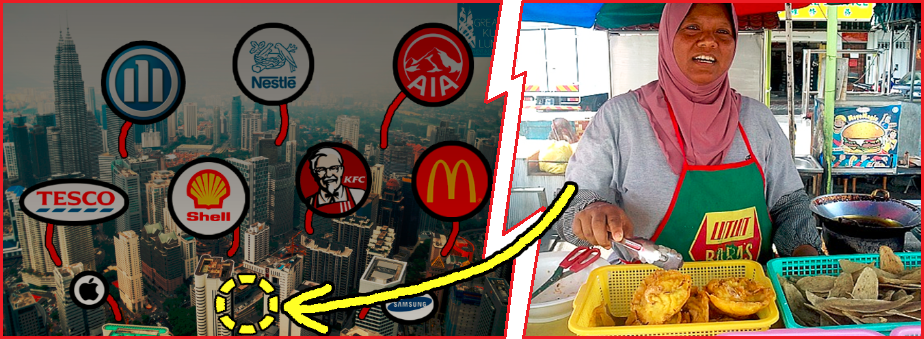
Basically from now on, foreign workers cannot open their own kuih stall at the roadside or char kuey teow hawker stall in a kopitiam. Even if the stall is fully owned by a Malaysian, the boss cannot have too many foreigners working for him or her, as long as they adhere to the 50% regulation.
Do you guys remember that something similar happened in Penang? When Lim Guan Eng banned all foreign workers from cooking at a hawker stall. They can still do the serving and washing up, it’s just that they cannot cook the food.
So, why did DBKL suddenly decide to set this regulation on small stall sellers and hawkers? According to the Licensing and Hawkers Development Department Director Ibrahim Yusoff, they want to curb foreigners from dominating businesses in KL before it got out of hand, particularly in critical areas like Jalan Tun Tan Siew Sin, Leboh Pudu, Bukit Bintang, Medan Pasar, Pusat Bandar Utara, Jalan Chow Kit, Leboh Ampang, Petaling Street, Kuala Lumpur Wholesale Market, Selayang Daily Market, Chow Kit Market, Pudu Market and Keramat Market.
(Currently, there is an issue of foreign worker influx in Malaysia. There are 2.1 million registered foreign workers and 1.7 million illegal foreign workers).
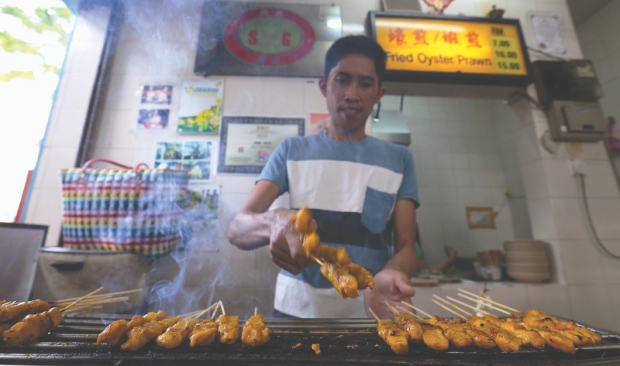
But what was the OLD regulation for business ownership? We found out that it is quite a drastic change in the new percentage required:
“The Companies Commission of Malaysia currently allows businesses with only 1% of its equity held by Malaysians. We fear a situation where Malaysians will soon have to work for the foreigners.” – Datuk Mohd Sauffi Muhamad, DBKL Executive Director (Socio-Economic Development), The Star
How do they plan to enforce this though? CILISOS called DBKL and spoke to their Licensing & Petty Traders Management Department..
“Lesen akan dibatalkan secara automatik dalam sistem kami. Kamu kena memohon lesen baru.” – representative from the Petty Traders Unit
Kuala Lumpur Hawkers and Petty Traders Association Chairman Datuk Ang Say Tee pointed out that previously, traders had 14 days to appeal if DBKL wanted to revoke their licence.
So DBKL officers will do their regular spot-checking on stalls to enforce the new regulation, and if your licence kena batal, or your stall is being managed by a foreign worker, then kantoi lor. So quickly, quickly tell your favourite kuih seller or kopitiam hawker in case they don’t know!
To reapply for a new licence, click here.
But if their intention is to minimise foreign workers, what about big and medium companies?
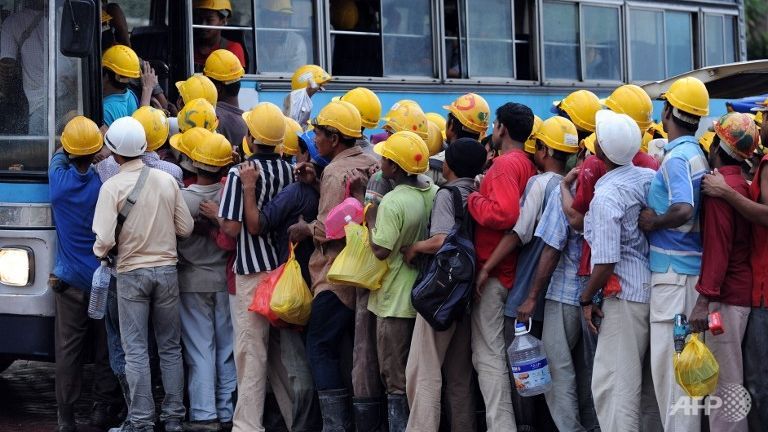
When you think about it, the number of workers in big, medium or small companies (even restaurants) in KL sure berlambak mountains more compared to the small ciku penjajas. So why not include them in this rule too, IF the intention is, as DBKL says, to “curb foreigners from dominating businesses in KL”? It just seems very unfair for petty traders to be the lone target la, while even restaurants are allowed to hire foreign workers.
(FYI, yes, companies in Malaysia can be 100% foreign-owned. Except for companies in these industries – education, oil and gas, banking and finance, tourism, agriculture).
Petty traders also stand to lose the most because, firstly, what are their workers gonna do whole day at the stall? Goyang kaki? Because DBKL has sent instruction letters to petty traders stating that foreign workers are only allowed to carry goods, push trolleys, or load, unload and store goods an hour before the START of the day and an hour after CLOSING.
And here comes the other problem…after sending the foreign worker back to his or her home country, the boss has to go through the trouble of rehiring. On top of that, they probably have to offer higher salaries to attract local workers as locals don’t like to do these kinds of jobs (which is why we hire foreigners to begin with).
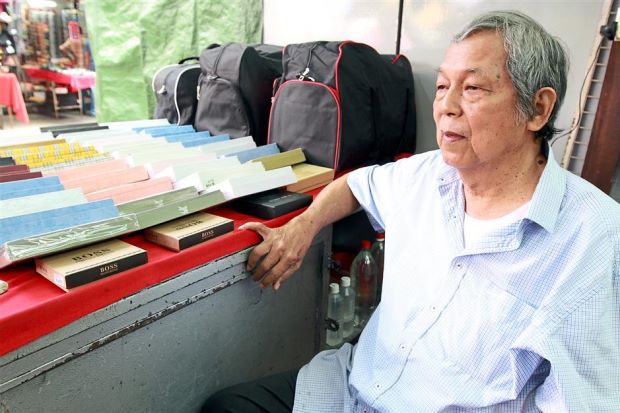
Unfortunately, the new regulation has made traders’ lives super inconvenient in other ways – even for those who DON’T hire foreign workers! Mix-ups have happened when DBKL officers took photos of foreigners at some stalls, so as a result their licence kena batal… BUT those foreigners were either customers or operating a nearby stall.
This happened to Dang Aik Ching (pic left) and another guy who only wanted to be known as Cheng. Both claimed he never once hired a foreign worker since starting his business 30 years ago:
“The foreigners being photographed at my stalls are actually those who sell VCD in front of my stall. Sometimes, they would put their stuff near my stall and come to my stall to take their items. It is okay to take visual evidence but DBKL should investigate thoroughly before issuing a letter to revoke my licence.” – Cheng told Star Metro
In protest, none of the traders have met the deadline (DBKL has issued instruction letters to them on Nov 16 and they were told to sign it by Nov 18). More than 770 traders in Petaling Street plan to meet KL Mayor Datuk Seri Hj. Mhd. Amin Nordin bin Abd. Aziz. “We want discussions with DBKL so that we can provide our feedback,” said Little India Traders representative G. Gunasegaran.

One solution is to increase minimum wage to attract local workers
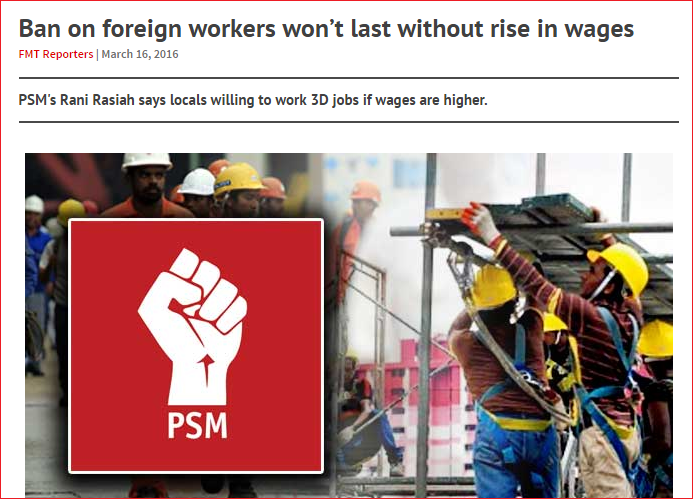
We know we said that hiring locals would be tough on petty traders, because some of them make very little profit as it is. Yet if DBKL insists on this new regulation, then we would have to look into increasing wages and improving work conditions, in order to attract locals to work in these industries.
Or the government could complement low wages with subsidies (for example, cheaper housing) if it wants to encourage Malaysians to take on dirty, difficult, and dangerous jobs, suggests Parti Sosialis Malaysia (PSM) Central Committee Member Rani Rasiah.
While PSM welcomes the freeze on foreign workers – implemented on 19 Feb – Rani said it won’t last long if the Government doesn’t resolve the problem of low wages. Currently the minimum wage is RM1,000 in Peninsular Malaysia, and RM920 in Sabah, Sarawak and Labuan. Could WE live on RM1,000 a month in KL? Most, if not all of us, would probably find it a challenge. True enough, 3 months later on 9 May, the Government lifted the freeze for four sectors BECAUSE tak cukup pekerja. How like that? 🙁
At the end of the day oso, the rule should be inclusive la to big, medium and small businesses, don’t just single out humble penjajas, otherwise what are we really going to solve?
- 1.2KShares
- Facebook1.1K
- Twitter11
- LinkedIn2
- Email39
- WhatsApp89

